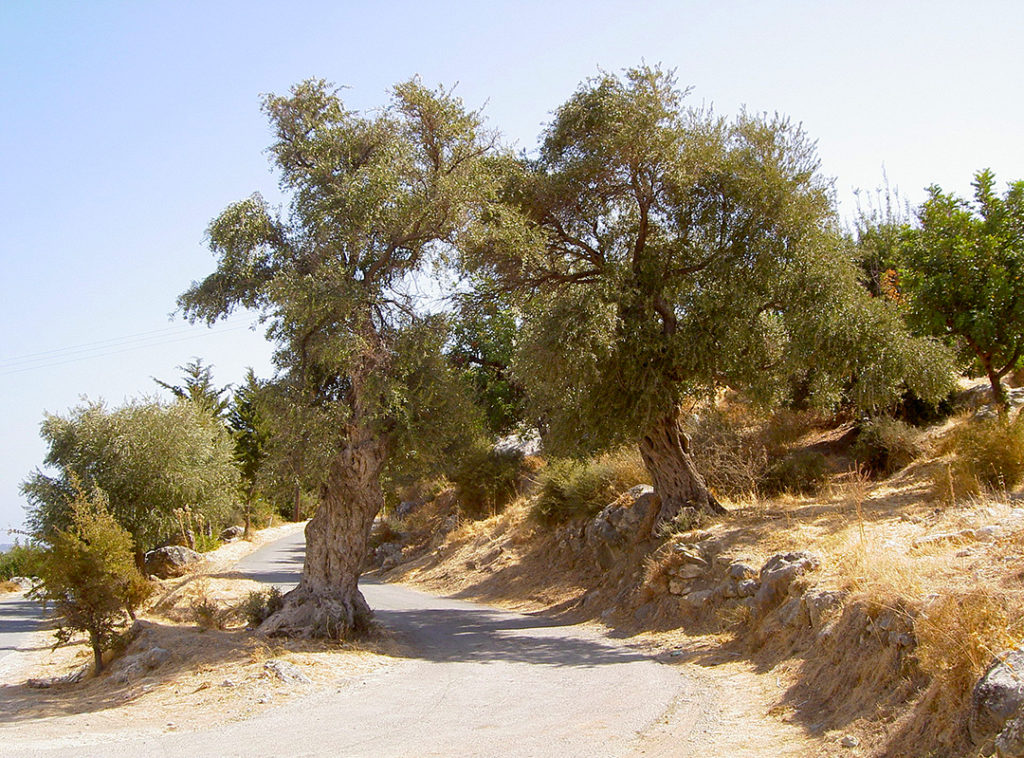
Israel
Olive Tree
Olea europaea

General Description / Cultural Significance
Israel is a Middle Eastern country located on the Mediterranean sea. It is considered a biblical holy land and is sacred to Jews, Christians, and Muslims. Olive trees have inhabited the land that is Israel for millennia. They produce tons of edible olives that are used in various ways and in various products, and provide a livelihood for many people in the country. It is considered their national tree and is a symbol for the country. The olive branch is a symbol of peace for which the Israelis say they strive. There is archaeological evidence in the form of fossil pollen that has indicated that olives were first domesticated in Israel 7,000 years ago.
Olives and olive oil were a staple of ancient economies in the region and invaluable for cooking, lighting, medicinal healing, and ritual purposes. The same is true today. It is believed that a small olive oil jar lit the menorah in the Second Temple in Jerusalem for eight whole days. This is just one of the ways the olive tree is connected to religious practices. The most common varieties of olives grow are Barnea, Nubo, Picholine, Picoel, Maalot, Muhsan, Manzenillo, and Zuri.
As part of Israel’s occupation of Palestine, Israelis have uprooted an estimated 830,000 olive trees between 1967 and 2009. The UN reports that in the five years after that, 50,000 trees were destroyed. These olive trees have extreme longevity but are slow-growing, so are virtually irreplaceable in a lifetime.
Climate Change/Conservation Status
Israel is experiencing a reduction in the amount of rainfall and distribution of the precipitation. There are already changes in the sea level as well, and they anticipate the potential of saltwater infiltration of their aquifer’s groundwater. They are also experiencing harsher and longer heat waves.
Farmers find it increasingly difficult to grow olive trees because the conditions outdoors have become so hot and unfit for activity, and because the trees require water during droughts. While olive trees are good at enduring extreme heat, it is clear that they are affected by climate change. Even though the IUCN does not list the olive tree as endangered, willful destruction and climate change have greatly reduced their numbers. Additionally, since 2017, Israel has seen a sizeable decline in olive production as a result of challenging weather, droughts, insect infestations, and diseases.
Alternate Names
Sources
Bowen, J., 2014. Israel and the Palestinians: A conflict viewed through olives. BBC. [website]
David, A., 2020. Olives First Domesticated 7,000 Years Ago in Israel, Study Says. Haaretz. [website]
Information Office, Embassy of Israel. This statement can be found on the World Sensorium original website.
KKL-JNF, n.d. Olive. Pionet Malam Team. [website]

